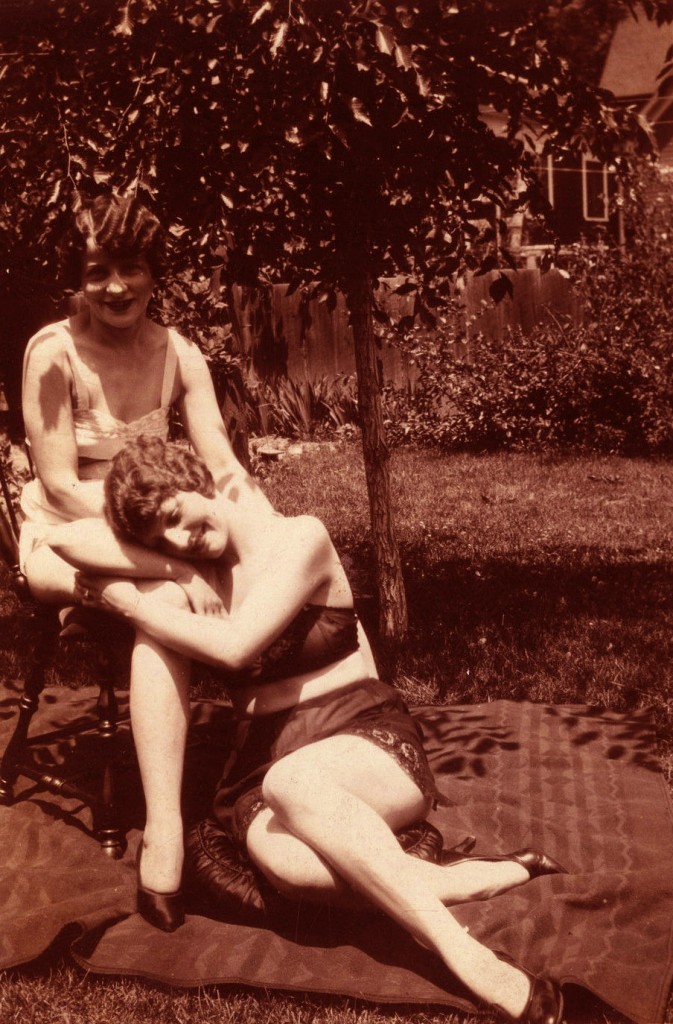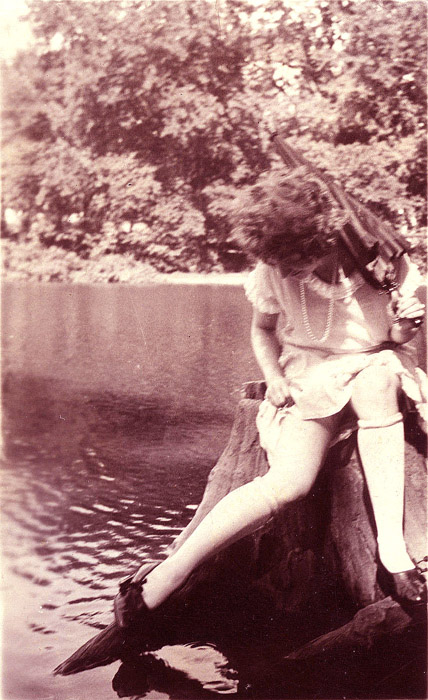
I started with a Kodak Brownie, like every other kid on the block. It was a one-focus lens and a slow, slow shutter speed. The only thing you could do with that camera is what you see here — get about ten feet away from subject for full-body, three feet for closeups, and snap away, hope for the best. You had to send your film to Kodak in Rochester, New York to have your photos processed and printed glossy with gnarly deckled edges, making it hard to insert them into a photo album, but who cared, as long as the pictures came out.
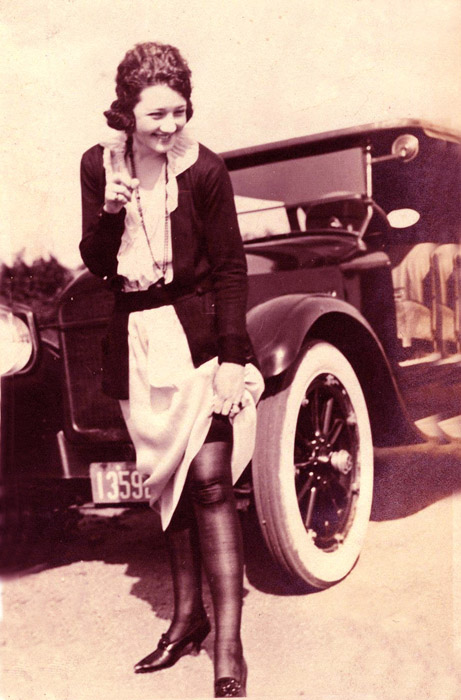
Aunt Vilma used to take me up to her “getaway” cabin up in the mountains near Kingston, New York. I enjoyed the weekends, and she liked to pose for me. Here’s a shot that she took of me in male drag when I worked as a Trail Guide:
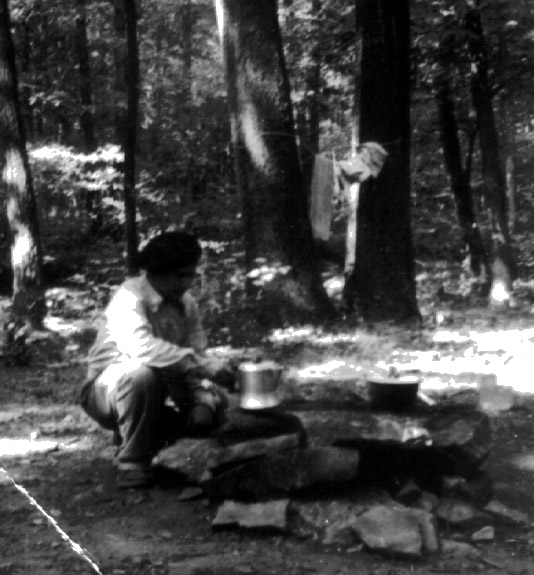
During the summers between 1957 and 1959, I spent my time as a mountain trail guide, bringing groups of hikers — we didn’t trek, we hiked — down the Arrowhead Trail all thew way into Gettysburg, where I would describe first-hand how the battle raged from day to day in each spot, ending up at a home that had literally tons of shot in its woodplanked walls.
That little cooking kit served me well for two summers; I had the fire going and coffee ready and breakfast — eggs and spam — made and on the table, meaning a nearby flat rock or stump, by the time folks got up. There were no sleeping bags, just bedrolls and ponchos or half-shelters — a poncho makes a good half-shelter, and doubles as a rain cloak, saves weight and space in your pack, see?
I was well-trained in survival skills, additionally by my attendance at Riverside Military Academy in Gainesville, Georgia, wintering in Hollywood-by-the-Sea, Florida. We did all sorts of bivouac training back in the day. Here’s a surviving photo from that time:
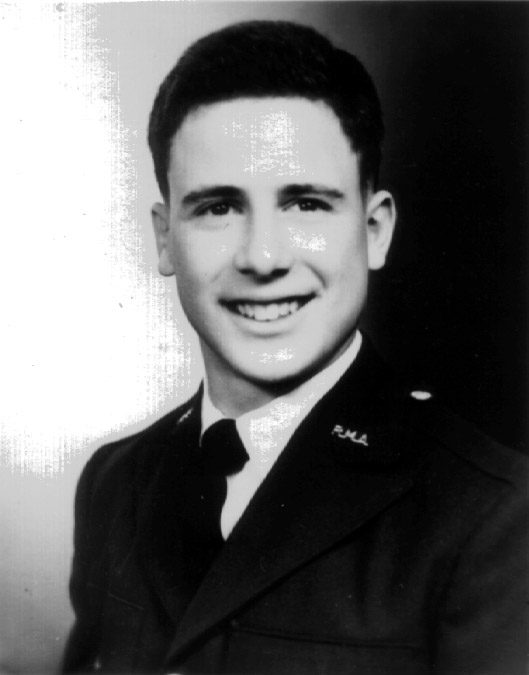
Anyhow, my photo career got an additional boost when I got my first “real” camera, an Ansco Flash Clipper, which had a flash attached to it, so I could take indoor shots. The lens was still fixed and there were only two exposure settings, “flash” and “no flash”, but it was a definite improvement over the Kodak Brownie, essentially just a box camera. Here’s a shot I took with the Ansco Flash Clipper, sometime around 1956 or 1957:
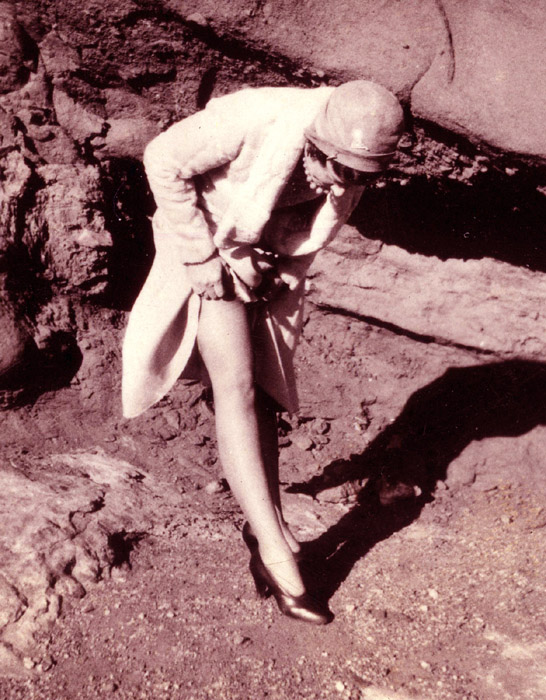
It’s still on the stiff side, but the shots are definitely getting better and slightly more risque as the years go by. Aunt Bea had once been a model, but those days were long gone by when this shot was taken. I was too inexperienced to notice that her stocking was bunched up in the shoe, and would definitely show in the print. I soon learned to correct those things, but hadn’t seen this problem before. When I printed it, I saw it immediately, and resolved to not let that happen again, but it did, in the form of deflated nipples on a Playboy model, but that’s another story.
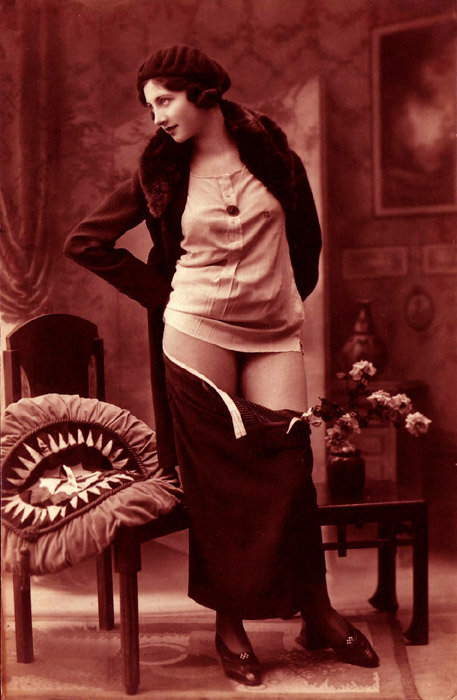
Aunt Hattie was a stage performer, and a friend of Sophie Tucker, as was my “flapper” grandma, Nana Celia. She loved to get into character, do Regency, Edwardian and Victorian hairstyles and put on vintage garb which she collected for her theater troupe, “Victorian Theatre” on 2nd Avenue; the small storefront theater opened in 1947, and somehow managed to survive for more than 35 years under her direction, closing finally in 1983 with the performance of “The Boyfriend” in which she’d starred so many years before.
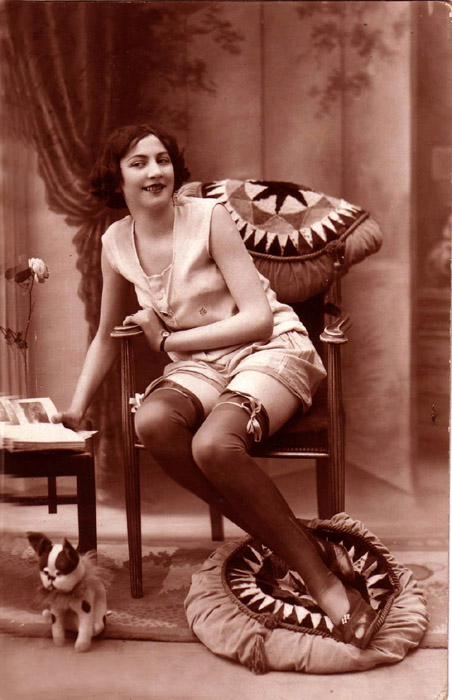
Aunt Hattie wasn’t the only relative in my family who loved vintage clothing and acting and dancing and art and theater…
When I moved to California, I had to rely on other models — I’d run out of aunts and cousins. Here’s an example of my first professional photo shoots:
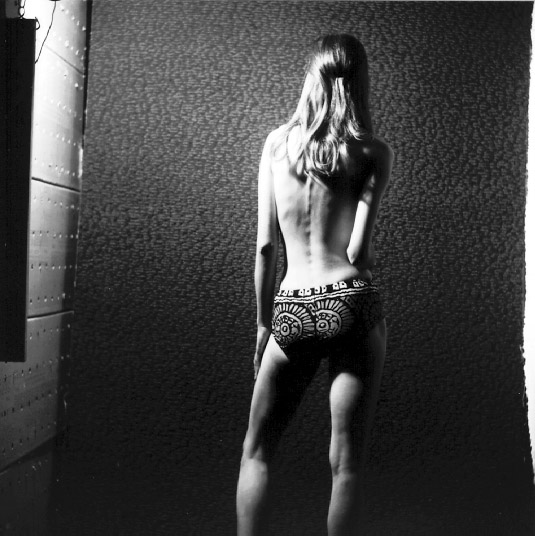
Things went rapidly from 1964 on, when I went into medium-format cameras and built my own darkroom. I did album covers, magazine covers, album liners and magazine coverage in Tiger Beat, Monkee Spectacular, Mod Teen Magazine and others, and my cheesecake shots went into Adam, Knight and Cavalier Magazines from 1964 through 1972.
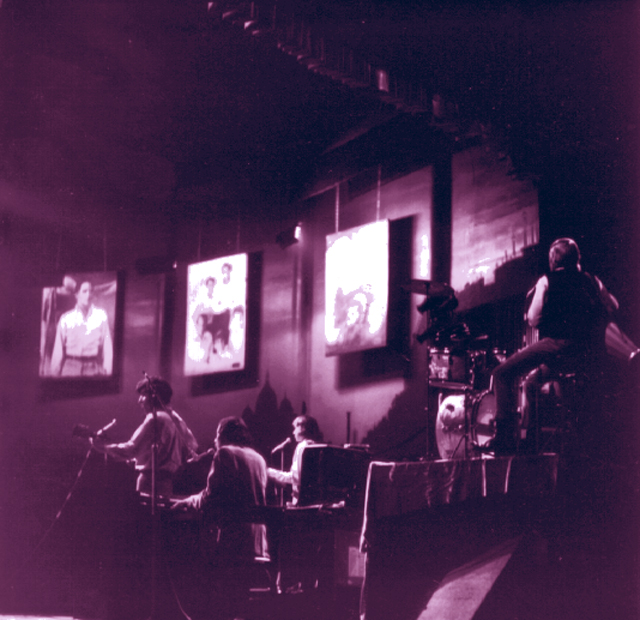
Cheesecake is all right as a starting point, but it has to lead somewhere or it can’t go anywhere. You soon learn that every subject is worth examining with the camera’s eye, and off you go into other worlds without even knowing that you’ve done so.
One more irresistible shot from 1947, of my Aunts Mary and Simone, clowning around:
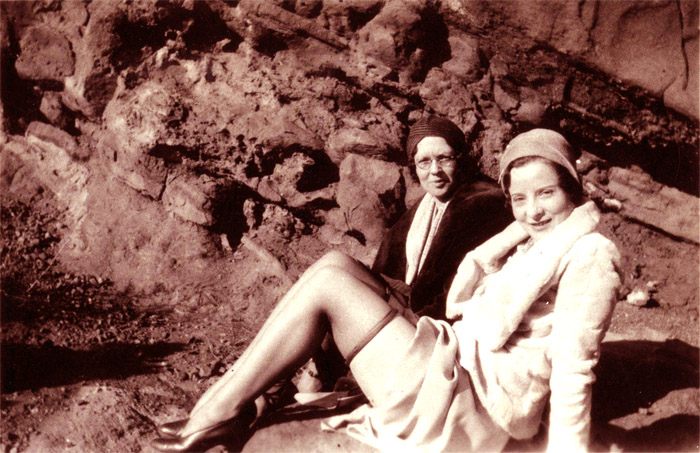
I suspect that my upbringing was on the unusual side, related to aunts, but I finally managed to photograph someone other than one of my Aunts, and from that I made a career, albeit a short one, from 1964 through 1972, and you can, too!!! Cheesecake always sells, and that goes double for stockings and pantyhose, which is the whole point of this blog — Amy expects the INFORMATION MAGIC PANTYHOSE by the 20th, and we’ll be modeling them as soon as we get them!!!

Don’t be surprised that so many of my aunts and cousins posed for me. I didn’t present as a boy except at school.
See You At The Top!!!
LeslieAnn


